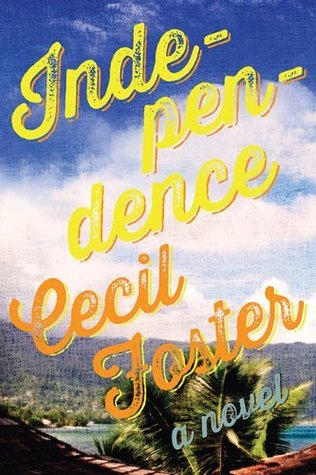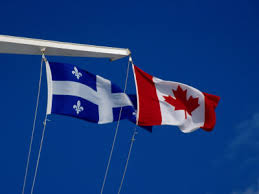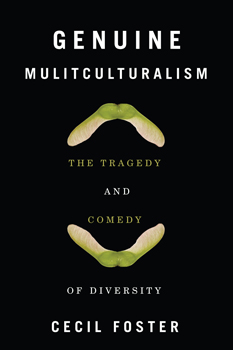About: Cecil Foster
Recent Posts by Cecil Foster
Guest Feature – Who owns a country? – Mcgill-Queen’s University Press
Foster Talks Independence – Tony Best
Buried in Print – Cecil Foster’s Independence
Cecil Foster’s Independence (2014)
 Harper Collins Publishers, 2014
Cecil Foster’s experience is not unlike Desmond’s, but Independence is rooted in the...
Harper Collins Publishers, 2014
Cecil Foster’s experience is not unlike Desmond’s, but Independence is rooted in the...
CBC Podcast – The Next Chapter
The National Post Review: Independence – Donna Bailey Nurse
 Independence
Growing up in, Bridgetown, Barbados, where he was born in 1954, Cecil Foster much preferred cricket to reading. Nevertheless, once a week his...
Independence
Growing up in, Bridgetown, Barbados, where he was born in 1954, Cecil Foster much preferred cricket to reading. Nevertheless, once a week his...
Black History Month
Welcome Back Cecil Foster

Cecil Foster – Now on Pinterest!

Burlington Public Library – Meet The Author

Meet the Author, Cecil Foster
Burlington Public Library - Central Branch
Tuesday, April 15, 2014 - 07:00pm
Journalist and author, Cecil Foster joins us to discuss his latest book, "Independence", a story about a boy and a country coming of age, set in Barbados' as it gains its independence from Britain. Fourteen-year-old Christopher Lucas and Stephanie King have been...Toronto Life – See, Hear, Read: the seven releases you absolutely should not miss in February

Toronto Life - See, Hear, Read: the seven releases you absolutely should not miss in February
On the long bus ride home, when I usually revise my "to-do" list of the day, I pushed "get a set of letter stock and envelopes to write home" to the top of my list for the next day. Even with all the carry over from the days before, at the moment nothing is more important than writing back home. Somewhere between going to school, dreading getting out of bed to go to work, and bundling up against each cold day, it's as if I've forgotten about my family. The calypso I play at the bus stop and warmth I remember radiating off of the sand in Barbados are lifelines up north, but I can't remember the last time I called them. Even from the preface of Independence, the first few pages that I usually blatantly disregard, I felt guilty.
Christopher, the novel's protagonist, and Stephanie are God siblings, neighbours, and best friends. They are also coming of age in the time of Barbados' independence from England (1966) while their single mothers have gone "over n' away" to North America for work. While Stephanie has already slipped into the assumption that she is more mature than she actually is, Christopher is focused on getting back in contact with his mother. During post-independence Barbados, many of the island's young adults who went away to work slowly began to stream back in, and that's where the bacchanal begins.
...
[Read More from Leslie Nicole's Site]http://www.leslienikole.com/2014/01/independence-cecil-foster.html
CTV NEWS – Canada AM Interview

Life Not Lived – Guest Post Featured on The Saavy Reader
A few years ago my wife Sharon and I were driving along the island roads of Barbados, windows down, radio turned up. I remembered vividly the same scenes from when I was a little boy: sugar cane fields, outcrops of limestone, stands of mahogany trees, pastures where I played cricket, in the distance white sand beaches and fading blue waters. But there was also change, lots of it — a major highway, housing estates, a spanking new seaport where Oprah, Tiger Woods, and other billionaires dock their yachts.
Dr. Foster divides his time between research, writing, and teaching, and he is a professor of sociology at the University of Guelph. For this month’s featured Oral History, he joins Paul Watkins, PhD student in English Literature, ICASP Graduate Fellow, and Toronto-based sound poet, for an informal public interview (during the 2011 Guelph Jazz Festival Colloquium) about jazz, improvisation, the writing process, and multiculturalism.
Cecil Foster in conversation with Paul Watkins
Whose values: mine, yours or ours?

A Celebrated Bajan Author’s First Novel In Ten Years

Independence is the touching story of the coming of age of a country and two teenagers in it, at the time of Barbados’ independence from Britain in 1966.
McGill-Queen’s University Press

A provocative look at why multiculturalism could only have originated in the Americas.
While many modern societies are noted for their diversity, the resulting challenge is to determine how citizens from different backgrounds and cultures can see themselves and each other as equals, and be treated equally. In Genuine Multiculturalism, Cecil Foster shows that a society's failure to bridge these differences is the tragedy of modern living and that pretending it is possible to mechanically develop fraternity and solidarity among diverse groups is akin to seeking out comedy.
SEEN UP NORTH: Thank you, Sir Frank

Addressing Dr Frank Alleyne, one of Barbados’ newest knights, as “Sir” wouldn’t be a difficult thing for Professor Cecil Foster.
Recent Comments by Cecil Foster
No comments by Cecil Foster yet.
Recent Comments
Popular Tags
Recent Posts
- Canadian Notes & Queries: Hey Porter
- TVO – Excerpt: Cecil Foster’s ‘They Call Me George: The Untold Story of Black Train Porters and the Birth of Modern Canada’
- CBC – The untold story of Canada’s black train porters
- The Toronto Star – In 1954, Black train porters called on Ottawa to transform Canada into ‘a country of equality’
- The Toronto Star – Demeaned, overworked and all called George: How Black train porters transformed Canada
- The Caribbean Camera – How Black Train Porters helped to build modern Canada
- The Globe and Mail – How black train porters helped put Canada on track
- Radio Canada International – The story of the Black Porters on Canadian railways
- Biblioasis – An Interview with Cecil Foster
- 2015 Giller Prize Jury Includes Guelph Prof, Alum




